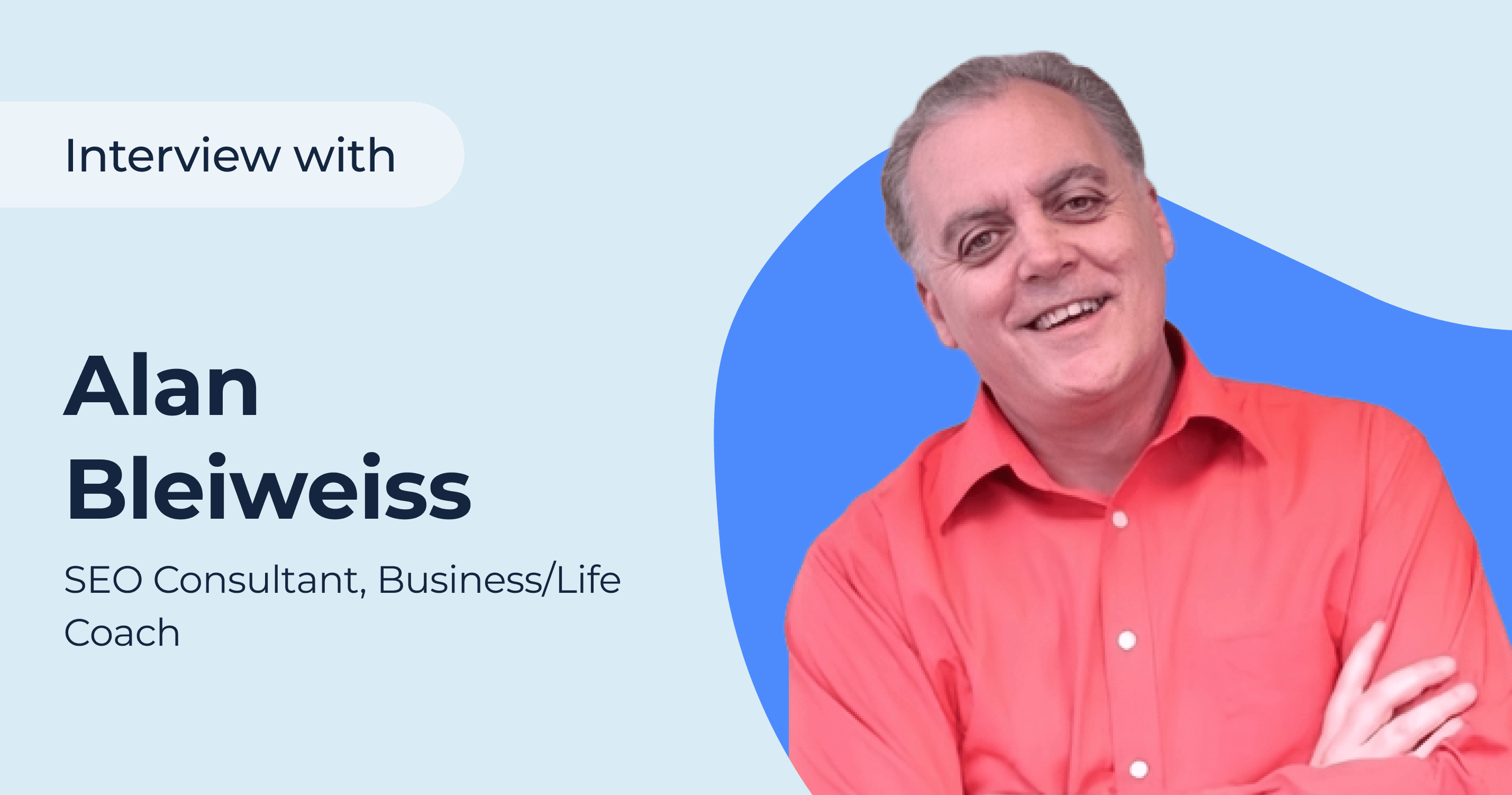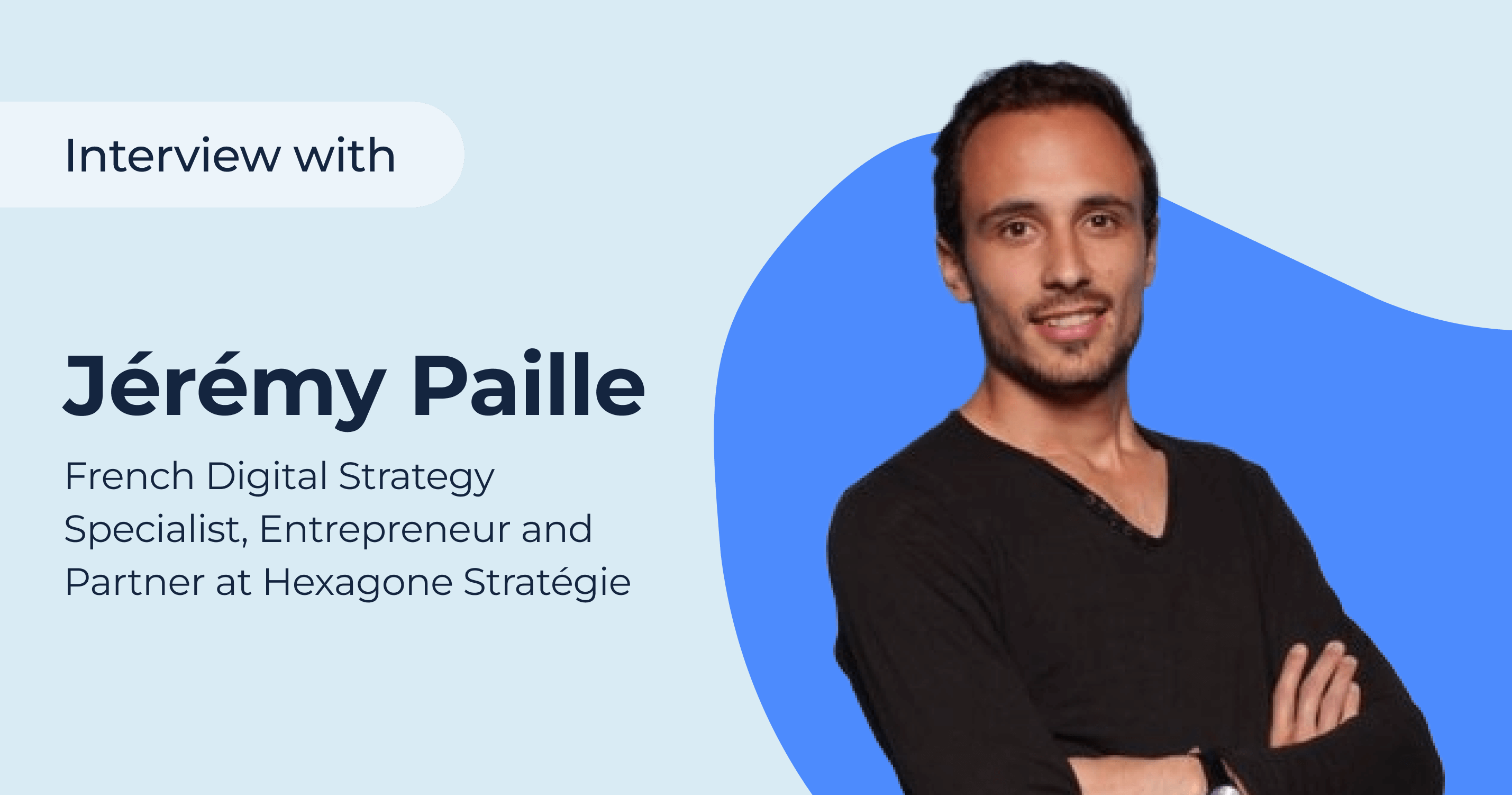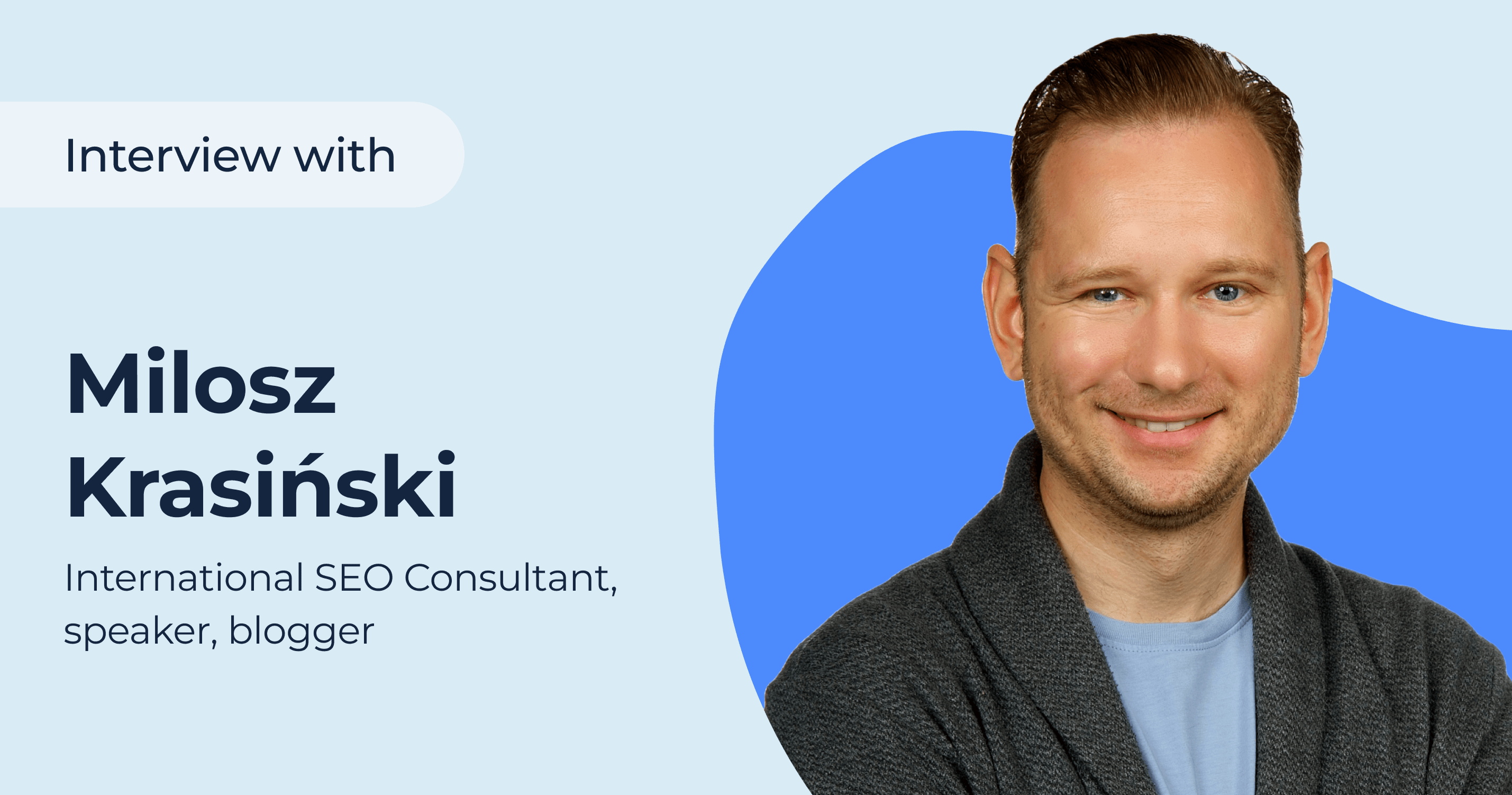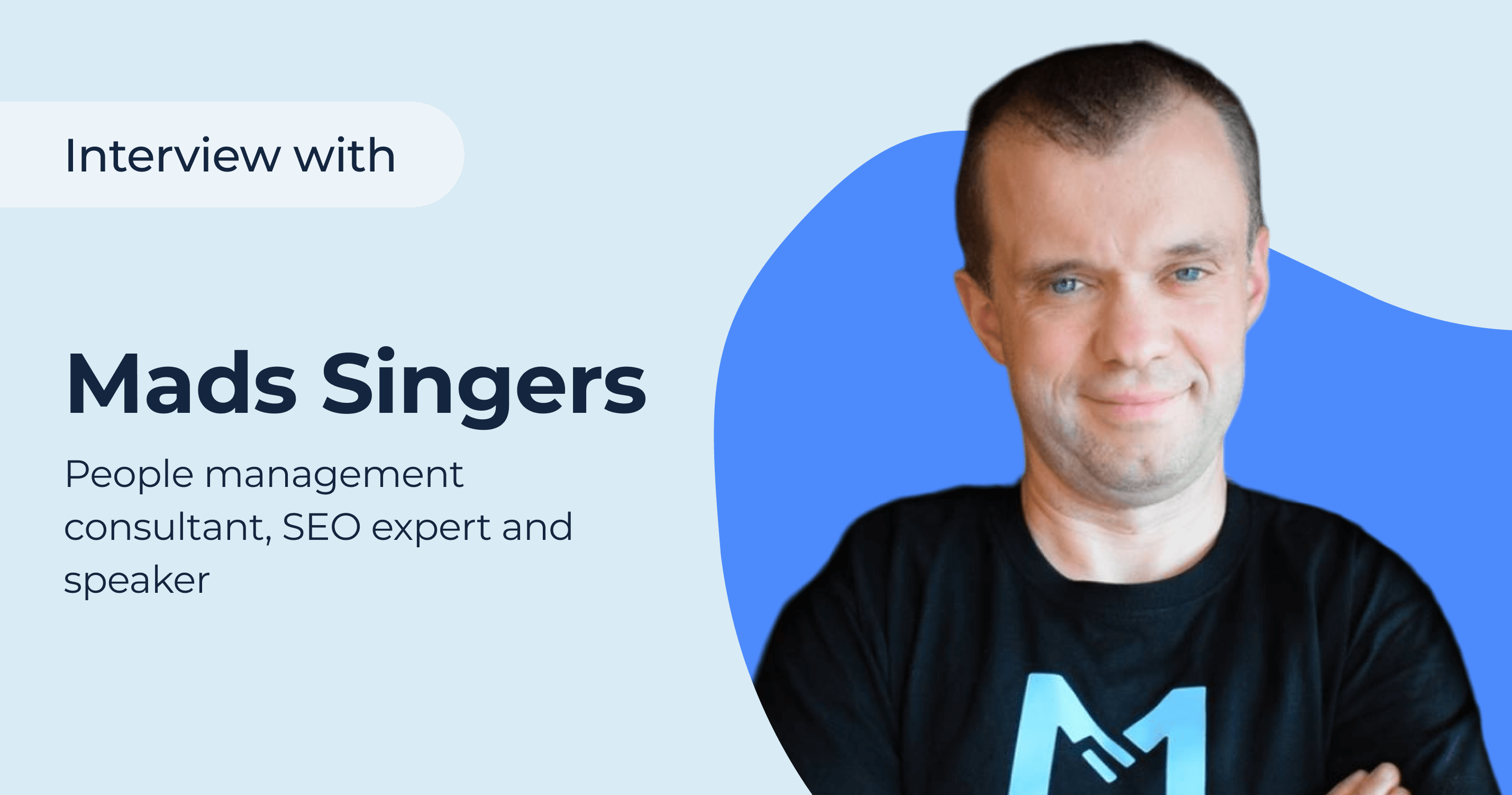We have great news! We continue to interview Digital Marketing and TOP SEO experts. This time we interviewed Alan Bleiweiss!
Alan is an SEO Consultant, Business/Life Coach with 20+ years of experience.
Alan shared his SEO consulting experience and SEO audits cases. He also talked about SEO tactics that are possible to use in work with clients.
To know more about Alan Bleiweiss projects, follow his Website or Twitter page.
So let’s start! Enjoy and get new insights with Sitechecker and Alan Bleiweiss:
1. How many years of experience in digital marketing do you have?
I have been providing internet marketing services since January of 1995, SEO since 2000/2001
2. What type of digital marketing you have the strongest skills?
My strongest skills are in on-site SEO – specifically strategic site audits. That’s been my primary business for the past seven years.
3. What projects are you proud of?
Being able to help clients resolve issues that have prevented them from succeeding in organic revenue growth. Whether it’s a small business or a global enterprise, the relief they get after struggling, and the growth they experience impacts business owners, management, their team, their customers and the families of all of those people.
4. What do you do to further your own SEO knowledge and skills?
I stay on top of all the news and discussions within the industry. I do so through following several people I highly respect in the industry. Just of a few of these include Bill Slawski, Dawn Anderson, Barry Schwartz, Cyrus Shepard, Britney Muller, Jamie Alberico, Dana DiTomaso, Joy Hawkins, Roger Montti, Pedro Dias, Dejan, Ashley Segura… And of course John Mueller from Google! There are too many to list!
5. Is there any marketing or SEO blog you like most of all and why?
RustyBrick – Barry Schwartz’s blog is my go-to for any trends that appear to be happening. Also, from time to time Search Engine Journal, and Search Engine Land.
URL hierarchically organized evergreen content is at the top of my list. Too many SEOs and site managers focus on blogging or content marketing.
Alan Bleiweiss, SEO Consultant, Business/Life Coach
6. What are the TOP-3 errors you made at the beginning of your SEO specialist career?
A. Just doing what I saw others doing, regardless of whether it was best for users.
B. Failing to understand the need for sustainable tactics.
C. Focusing on tactics rather than strategy.
7. What SEO tactics do you think are underrated?
URL hierarchically organized evergreen content is at the top of my list. Too many SEOs and site managers focus on blogging or content marketing. They fail to build on-site evergreen depth for the primary product or services related content. They fail to organize that content into true topic clusters, and they fall short on answering all the important questions people have during the full life cycle of the decision journey.
8. Do you believe that backlinks are Google’s past? Is link building important for increasing the website’s positions nowadays?
No – backlinks (inbound links from other sites) are still, to this day, the only viable way to try to determine whether a site or a given page within a site is respected and trusted. They (Google and Bing) continually work to refine and improve their need to weed out low quality, artificial or junk link signals. Google has, over the years, attempted to supplement and to some degree, replace link signals with the social sentiment. Yet doing so is much more complex in the extreme.
I don’t buy into claims that anyone particular claimed, supposed or even acknowledged update has, in the past year, been about any one specific type of consideration or set of considerations that SEOs can fixate on.
Alan Bleiweiss, SEO Consultant, Business/Life Coach
Proper link building, which reflects old school Public Relations models (regardless of SEO), is critical to provide a more complete picture of a site’s relevance, quality, and trust.
9. In your opinion, does the technical health of the website affect the ranking positions in search engines?
Absolutely. We know for a fact that as of last year, Google began integrating page speed into their ranking system for mobile search. And since my specialty is forensic site audits, I have seen and helped resolve countless technical issues that had either cause drops in organic traffic or had been preventing sites from maximizing their visibility in search results.
This becomes more important the larger the site or the more competitive the landscape for a given industry. You can write the greatest, most respected content in the world. Yet if search engine crawlers, indexers and algorithms can’t make use of that content in a frictionless manner, there are more likely to be negative consequences in any one or combination of those three process sequences.
10. We all know about the July update from Google. Some websites rose, some of them fell. What do you think about the new algorithm? What are the main new rankings factors SEO and Marketing specialists should pay attention to? How do you stay up-to-date on the near-constant search algorithm changes?
I don’t buy into claims that anyone particular claimed, supposed or even acknowledged update has, in the past year, been about any one specific type of consideration or set of considerations that SEOs can fixate on. Google’s reps have repeatedly stated, on record, that these updates have been about the overall improvement to the system itself. And for every claim that any one of these last several updates has been focused on any one particular industry or any one particular aspect of quality or authority or trust, myself and many others who specialize in strategic audits have shown other sites not fitting those claims.
And relying on auditing only one or a few sites (true, deep-dive audits that can only be done when you have direct access to a sites’ internal, private analytics and search console data and reports), is not enough to properly understand the full range of changes that might or might not have taken place in any one update.
What’s worse, many people claim to know what an algorithm was about merely because they observed the public visibility of some narrow aspect of some sites. Which is invalid for really knowing what’s going on. The scale that Google works at it exponential to anything any individual or third party tool provider can match.
So what needs to happen is just what has always happened in this world. When a site suffers, it needs to be evaluated independently in its entirety, regardless of the noise or claims some people (no matter how high on a pedestal they may be) make. And it needs to be looked at for ALL of the factors that go into SEO.
I cannot tell you how many times I have done an audit where it turned out issues NOT associated with claims about a given update, turned out to be much more impactful overall on a site. In those cases, a site had already been weak, and vulnerable, when an update came along. The straw that broke the camel’s back. If you don’t resolve those other issues, you’re not creating a sustainable future.
So trying to keep up with “the latest” in SEO is valid. However if you don’t use that to build on what you already know and understand, and if you don’t consider ALL of those things, it’s even more of a crap-shoot as to whether you can get positive results. And it’s even more of a crap-shoot that those methods will work on other sites.
11. In your opinion, does user’s behavior impact on website ranking in SERP?
Yes, however, this is one of the most complicated aspects of SEO. First of all, things like “pogo-sticking” (clicking on a search result, visiting a site, then going back to Google and clicking on a different search result) is not a direct, site-specific ranking factor. Yet a respected Googler started a few years ago such data can be used to help Google refine their overall algorithms.
Yet even that may not be entirely valid on a case by case basis (and thus can’t be used for individual site ranking signals). For example, if I am doing early-stage research on a topic, I will often intentionally go to multiple sites. Some or all of them may perfectly fit my searcher intent. And going back to Google is NOT a sign that I had a bad experience.
Screaming Frog, one of the search industry’s most well established and trusted site crawling tool providers, has made significant improvements in regard to even more advanced evaluations of sites.
Alan Bleiweiss, SEO Consultant, Business/Life Coach
Other aspects of user behavior, can, to varying degrees, provide signs and signals that a site is weak in a number of ways. In one example, if the combination of bounce rate, average time on page, and an average number of pages is, in concert, lower than I expect within a given industry, those are NOT direct ranking factors. Yet they MAY paint a picture that on-site usability is weaker than it might otherwise be. And in many cases, I have helped clients improve that usability in a way that improved all of those metrics. And the end result has been a growth in organic SERP presence, with subsequent higher traffic and goal completion.
Yet none of that is a direct ranking factor itself. It’s all cumulative refinement that can lead to better crawl, indexing and algorithm results.
12. What is your approach to developing an SEO strategy?
Everything for me starts with a forensic site audit. You can’t know what to do until you understand the complex landscape specific to an individual site, within a given industry. You need to understand the various “persona” types for your unique offerings, within your industry. And you need to align those with your business’s short, mid, and long-term goals.
You need to integrate sustainability efforts if you are not just looking for short-term “churn-and-burn” victory. You need to understand the capabilities AND the limits of your team (or teams) that will be executing on that strategy. And you need to make adjustments to your overall approach based on considerations determined in each of those facets of understanding.
13. What services/companies/apps have inspired you the most this year?
Screaming Frog, one of the search industry’s most well established and trusted site crawling tool providers, has made significant improvements in regard to even more advanced evaluations of sites.
I love how they are always innovating. Not for the sake of throwing more functionality out there like most tool providers seem to want to do. Too many tool providers want to be all things to all people. Except that causes their core offerings to fall short or fall behind or suffer. From there, they rely on heavy marketing spin and “influencers” to trick people into thinking how great their tools are, in spite of the shortcomings.
Screaming Frog takes a different approach. One tool. Always evolving. Always improving. It’s invaluable. And no, I do not have an affiliate or compensated relationship with the SF team. This is my raw, honest opinion.
14. What are the most critical SEO mistakes you have ever seen in other companies?
Short-sightedness. Lack of critical thinking. Fixating on tactics without strategy. Focusing on trying to do what competitors do regardless of whether the things seen are valid or not. Ignoring user experience. Failing to focus on visitor engagement beyond the first visit.
I rely on more than forty tools in my work. Some more than others. Some for every audit I do, and others for specific needs, situations, industries, site types or circumstances.
Alan Bleiweiss, SEO Consultant, Business/Life Coach
15. How do you evaluate web analytics to measure SEO performance?
The first rule is to understand that web analytics has never been completely accurate, regardless of the analytics source. Even Google Analytics and Search Console data are imperfect. So understanding those analytics is viable only for glaring critical problems, and overall trends are vital.
From there, you need to understand how one set of signals, by itself, can be helpful for tactical evaluations. Yet if you don’t look at data across multiple signal sets, you’re missing out on the more complex relationship factors that are essential for strategic decisions.
For example – if you have data that shows 20% of your pages have little traffic, that doesn’t mean you can automatically kill off 20% of your site. You need to determine whether there is value to be gained in that content. Whether it’s through consolidation of pages, or improvement of individual pages, or moving blog posts to evergreen location, or improving internal links, or any number of other methods or a combination – there can often be many ways to take that low performing content and put it to use.
If you just kill off all that content, you’re often doing more harm to your site.
Also, you also need to have proper goals configured in your analytics system. Those goals need to be a range of goals not fixated on any one metric type. This is important to avoid myopic understanding of how well your site is doing or how you can improve things.
16. How do you see the future of SEO (in 5 years)?
Five years? that’s a lifetime when it comes to SEO. Yet one thing will remain true that has always been true in our industry. The core foundation principles of Information Retrieval, combined with the top priority need of satisfying human experience, will still be the core foundation of SEO five years from now.
Which means that 80% to 90% of SEO will still be the same as it always has been.
17. Which SEO or marketing tools can you recommend as a must-have for every SEO specialist?
I rely on more than forty tools in my work. Some more than others. Some for every audit I do, and others for specific needs, situations, industries, site types or circumstances.
My top tools include:
- Google Analytics
- Google Search Console
- WebPageTest.org
- GTMetrix
- Chrome Lighthouse
- Screaming Frog
- DeepCrawl
- SerpStat
- AHrefs (for broad link quality evaluations)
- Majestic (for link quality evaluations)
- Moz Keyword Explorer
- W3C Markup validator
- Google Structured Data Test Tool
- Tenon.io (for accessibility)
- 508 Checker (for accessibility)
- Mobile Moxie Search Simulator
- Media Genesis Responsive Design Checker
- Redirect-Checker.org
- BuiltWith
- Whitespark
18. What advice can you give for those who are just starting their career in digital marketing?
Start small. Build from there. Learn to accept none of us will ever have all the answers to every question or need. Live mostly in humble confidence within your existing capabilities while having the courage to grow, expand and take on things that seem frighteningly out of your league. Know when to call upon others with more experience for a given situation when you are clearly way over your head. Use critical thinking rather than relying on what some people who are sitting on popularity pedestals might say or tell you as if their word is golden.
Embrace the unknown while maintaining gratitude for what you have and what you’ve been blessed to experience. Pay more attention to your intuition than anything else.




